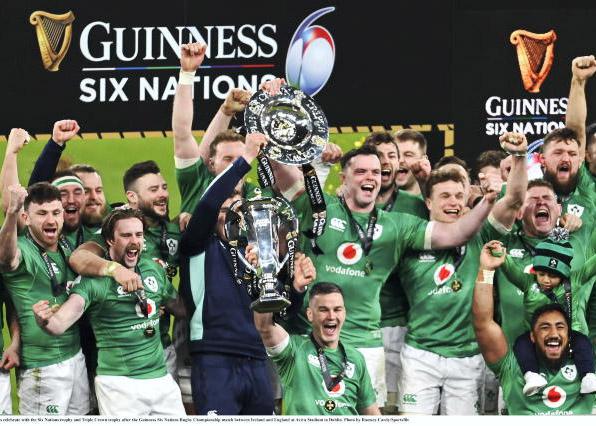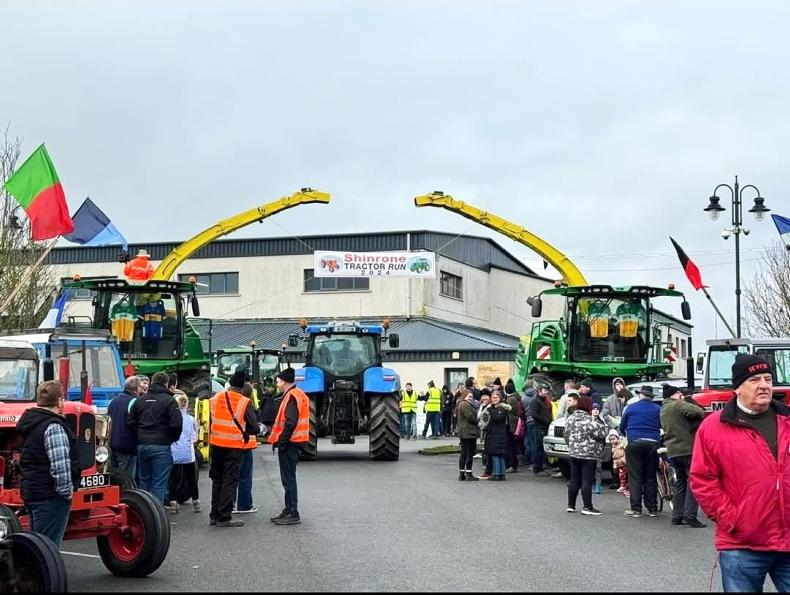The rugby union Test match between New Zealand and France on October 23, 2011 must go down as one of the worst top-tier spectacles of recent times.
It finished 8-7 in favour of the All Blacks, who were hanging on at the end, but ultimately the method of victory didn’t matter as the key takeaway was the fact that they had ended a 24-year wait for another Rugby World Cup win.
The penalty to put New Zealand 8-0 ahead – meaning that France would require two scores to win – was scored by out-half Stephen Donald. In his appearances for the national team since 2008, his performances had been mixed and he had been the subject of criticism; he wasn’t named in the initial World Cup squad and, with a move to Bath on the horizon, his international career seemed over.
After star number 10 Daniel Carter suffered a tournament-ending injury and third-choice out-half Colin Slade was also ruled out, Donald received the call-up to act as understudy to Aaron Cruden. He didn’t play at all in the semi-final win over Australia but then, in the first half of the France game, Cruden was forced off and Donald was pressed into action.
Fourth string
Few teams would cope with having a fourth-string player in such a key role in such a big game, but New Zealand had learned the lessons of the 2007 quarter-final, when Carter also had to depart injured and they narrowly lost to France as they had no drop-goal play prepared. The book Legacy, by James Kerr, outlines the change in culture from 2007 to 2011, illustrating how Donald was able to come in and contribute to such an important moment.
On Saturday at Aviva Stadium, Jonathan Sexton’s withdrawal from the Ireland team for the match against Australia was so late that his name and cap number had already been stitched into the number 10 jersey. As the team’s captain and out-half, Sexton is the star around which everything else orbits, so his loss is felt more than most.
Jack Crowley was in the Ireland A squad at the beginning of the autumn but promoted to the senior panel after an injury to Ciarán Frawley. Then, when Joey Carbery had to go off against Fiji, the Corkman came on and did well, meaning he was named as 22 for the Australia game.
Sexton having to cry off meant that Crowley came in and that meant that Ross Byrne, without an Ireland appearance since the 2021 Six Nations, was called in as the reserve option (Crowley’s name was stitched into the jersey that he wore).
Stepping up
Crowley kicked an early penalty and added the conversion after Bundee Aki’s try early in the second half, but Australia drew level before Ireland were awarded a tough-looking penalty out on the right-hand side. Byrne was only brought into training on the Monday but he ensured he was ready when needed and he slotted over a brilliant kick for a 13-10 win and a perfect record for the autumn matches.
While it may not have been at World Cup final levels of significance, that Andy Farrell and his management were able to reach down the depth chart to their fifth-choice out-half and have him still come up with the goods shows how high the standards are within the camp.
And even the reaction to the Ireland performances is a positive of sorts – we now seem to be at a stage where it’s not just enough in the eyes of the pundits for the team to beat South Africa and Australia, but to do so in style.
Where you fall on that spectrum is up to you, but we’d certainly prefer to be winning ugly than losing beautifully.
Unimpressive Ireland team
It was quite odd on Sunday for the World Cup to begin with the game between Qatar and Eduador and then be followed by the Republic of Ireland’s friendly international against Malta.
In 1989, a win in Malta earned Ireland a spot in the World Cup for the first time and this felt a galaxy away, both in terms of the juxtaposition and the fact that a 1-0 triumph against the team ranked 168th in the world should be described as “hard fought” by the FAI website.
Stephen Kenny has now been in charge for 30 matches and, while there have been some bright spots, the overall sense is of treading water at best. A Euro 2024 qualifying campaign in a group featuring France and the Netherlands certainly doesn’t seem to imbue much confidence.
The AIB Munster Club SHC semi-final between Ballygunner and Na Piarsaigh last Sunday afternoon was a match of high quality, with the levels of skill and intensity close to those of inter-county.
It was a feast for those lucky to be able to sit down and watch the proceedings on TG4 as the All-Ireland club champions came back to win with a superb second-half performance.
However, if you were travelling on Sunday – I was en route home from Ennis, where Ballyea of Clare beat Cork’s St Finbarr’s by a point – there wasn’t the same opportunity to keep up with proceedings.
While RTÉ Radio had Pauric Lodge and John Mullane at the TUS Gaelic Grounds for the Ballygunner-Na Piarsaigh game, they were only contacted intermittently for updates rather than providing commentary.
Instead, there was a studio discussion about the Sunday newspapers and, when Lodge and Mullane provided a half-time update, the former Waterford player was asked for his views on the World Cup.
We’ve nothing against Sunday newspaper sports reviews – it’s an idea pioneered by Newstalk which RTÉ have now ‘borrowed’ – but it seems odd not to go with commentary of the biggest domestic game of the day.
The rugby union Test match between New Zealand and France on October 23, 2011 must go down as one of the worst top-tier spectacles of recent times.
It finished 8-7 in favour of the All Blacks, who were hanging on at the end, but ultimately the method of victory didn’t matter as the key takeaway was the fact that they had ended a 24-year wait for another Rugby World Cup win.
The penalty to put New Zealand 8-0 ahead – meaning that France would require two scores to win – was scored by out-half Stephen Donald. In his appearances for the national team since 2008, his performances had been mixed and he had been the subject of criticism; he wasn’t named in the initial World Cup squad and, with a move to Bath on the horizon, his international career seemed over.
After star number 10 Daniel Carter suffered a tournament-ending injury and third-choice out-half Colin Slade was also ruled out, Donald received the call-up to act as understudy to Aaron Cruden. He didn’t play at all in the semi-final win over Australia but then, in the first half of the France game, Cruden was forced off and Donald was pressed into action.
Fourth string
Few teams would cope with having a fourth-string player in such a key role in such a big game, but New Zealand had learned the lessons of the 2007 quarter-final, when Carter also had to depart injured and they narrowly lost to France as they had no drop-goal play prepared. The book Legacy, by James Kerr, outlines the change in culture from 2007 to 2011, illustrating how Donald was able to come in and contribute to such an important moment.
On Saturday at Aviva Stadium, Jonathan Sexton’s withdrawal from the Ireland team for the match against Australia was so late that his name and cap number had already been stitched into the number 10 jersey. As the team’s captain and out-half, Sexton is the star around which everything else orbits, so his loss is felt more than most.
Jack Crowley was in the Ireland A squad at the beginning of the autumn but promoted to the senior panel after an injury to Ciarán Frawley. Then, when Joey Carbery had to go off against Fiji, the Corkman came on and did well, meaning he was named as 22 for the Australia game.
Sexton having to cry off meant that Crowley came in and that meant that Ross Byrne, without an Ireland appearance since the 2021 Six Nations, was called in as the reserve option (Crowley’s name was stitched into the jersey that he wore).
Stepping up
Crowley kicked an early penalty and added the conversion after Bundee Aki’s try early in the second half, but Australia drew level before Ireland were awarded a tough-looking penalty out on the right-hand side. Byrne was only brought into training on the Monday but he ensured he was ready when needed and he slotted over a brilliant kick for a 13-10 win and a perfect record for the autumn matches.
While it may not have been at World Cup final levels of significance, that Andy Farrell and his management were able to reach down the depth chart to their fifth-choice out-half and have him still come up with the goods shows how high the standards are within the camp.
And even the reaction to the Ireland performances is a positive of sorts – we now seem to be at a stage where it’s not just enough in the eyes of the pundits for the team to beat South Africa and Australia, but to do so in style.
Where you fall on that spectrum is up to you, but we’d certainly prefer to be winning ugly than losing beautifully.
Unimpressive Ireland team
It was quite odd on Sunday for the World Cup to begin with the game between Qatar and Eduador and then be followed by the Republic of Ireland’s friendly international against Malta.
In 1989, a win in Malta earned Ireland a spot in the World Cup for the first time and this felt a galaxy away, both in terms of the juxtaposition and the fact that a 1-0 triumph against the team ranked 168th in the world should be described as “hard fought” by the FAI website.
Stephen Kenny has now been in charge for 30 matches and, while there have been some bright spots, the overall sense is of treading water at best. A Euro 2024 qualifying campaign in a group featuring France and the Netherlands certainly doesn’t seem to imbue much confidence.
The AIB Munster Club SHC semi-final between Ballygunner and Na Piarsaigh last Sunday afternoon was a match of high quality, with the levels of skill and intensity close to those of inter-county.
It was a feast for those lucky to be able to sit down and watch the proceedings on TG4 as the All-Ireland club champions came back to win with a superb second-half performance.
However, if you were travelling on Sunday – I was en route home from Ennis, where Ballyea of Clare beat Cork’s St Finbarr’s by a point – there wasn’t the same opportunity to keep up with proceedings.
While RTÉ Radio had Pauric Lodge and John Mullane at the TUS Gaelic Grounds for the Ballygunner-Na Piarsaigh game, they were only contacted intermittently for updates rather than providing commentary.
Instead, there was a studio discussion about the Sunday newspapers and, when Lodge and Mullane provided a half-time update, the former Waterford player was asked for his views on the World Cup.
We’ve nothing against Sunday newspaper sports reviews – it’s an idea pioneered by Newstalk which RTÉ have now ‘borrowed’ – but it seems odd not to go with commentary of the biggest domestic game of the day.









SHARING OPTIONS